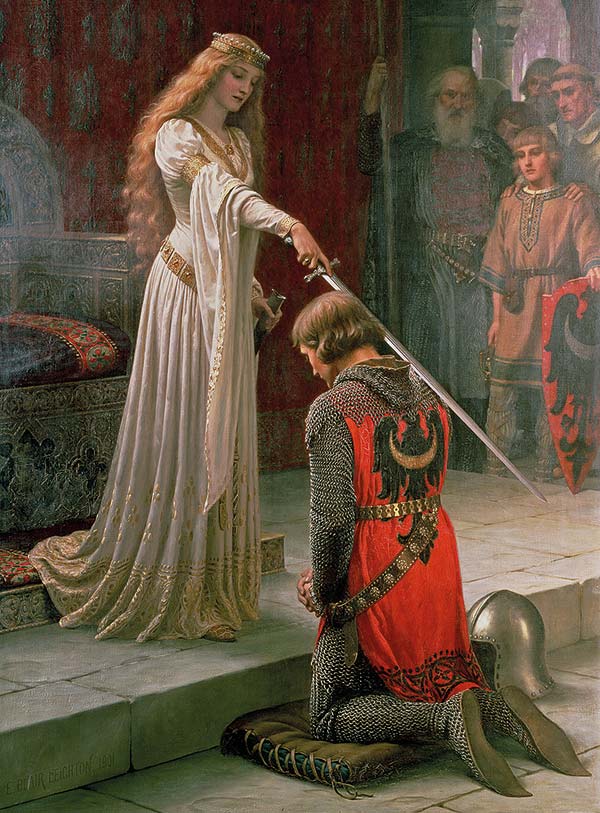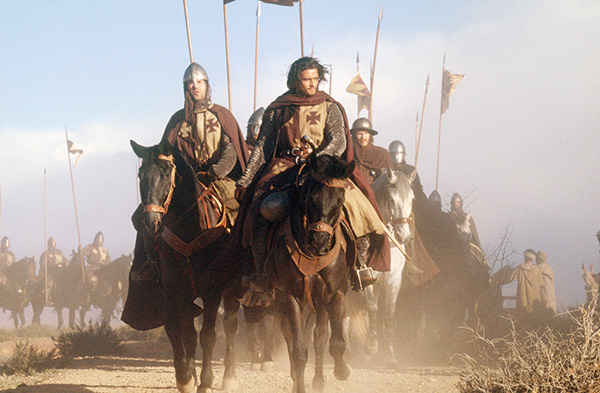Subtotal: $
Checkout
A Vow Will Keep You
For a Bruderhof pastor, a lifelong vow makes mutual faithfulness possible.
By Randall Gauger
September 7, 2022
Available languages: Español
Next Article:
Explore Other Articles:
If you listen to children bickering, or adults for that matter, you will likely hear one party appeal to the other’s sense of commitment: “But you promised! You gave me your word.” Despite the fickleness of human nature, there seems to be an innate expectation that when people make a promise to do, or not do, something specific, they will hold to that promise. Someone who fails to do so is considered weak-willed or selfish.
A vow is a weightier promise, a solemn pledge dedicating oneself to an act, service, or way of life. Vows must be taken completely voluntarily and are spoken in the presence of others who act as witnesses both to the taking and the fulfillment of the vows. This phenomenon is not unique to a specific culture or creed; it can be found across the globe in religious and secular contexts. Christian vows are made to God or in the presence of God. A vow forms a relationship between the person making the vow and God, as well as with the others in the community.
But do vows work? What gives us confidence that we are going to be able to keep them, any more than the promises people make and break on a daily basis?

Edmund Blair Leighton, The Accolade, 1901
My wife Linda and I took membership vows in the Bruderhof church community thirty-two years ago. We had come to the Bruderhof a few years earlier, in 1987, from Minnesota. We grew up as regular American kids of the sixties. We found faith in Jesus in the late seventies and began a search to find out where God was calling us and how we might serve him and his kingdom. We wanted to find a place where we could give our all and where life was not compartmentalized but integrated – where worship, work, education, parenting, and care of the elderly were part of a life lived with others who believed what we had come to believe.
After years of searching we found the Bruderhof and made a one-week visit. Months later we returned for a longer visit, and then we came to stay. We were part of the community for a couple of years before taking our vows. This gave both us and the Bruderhof time to discern whether God was calling us to this specific community and way of life. That process will vary depending on the individual, but it is never hasty.
In the Bruderhof the act of taking vows is a sign of giving oneself completely, binding oneself unreservedly, to the service of Jesus Christ in the church community. The vows commit us to future action: to proclaim Jesus in word and deed; to give everything for the sake of Jesus, including our strength, energy, creativity, and property; to go wherever the church needs us; to do whatever task the community assigns us; to speak honestly and accept correction; to repent and change when necessary; and to remain faithful to these vows for life.
Those promises are a very tall order if you take them seriously! When I think of them again now, I ask myself how in the world a weak, sinful, ordinary human being can hope to fulfill those all-encompassing vows. Of course, I have failed to keep my vows at times: I have bristled when people came with an admonition; I have grumbled at certain assignments I didn’t feel suited to; I have held my tongue when I could have witnessed to Jesus.
But do the vows themselves help hold us to the path of faithfulness? I think they do. A movie scene formulated this question in my mind a new way. Ridley Scott’s 2005 film Kingdom of Heaven tells a fictional story set in the time of the Crusades. In one scene Jerusalem is surrounded by a vast army of Muslims who intend to take back the city. In the city are mostly peasants, old men and women, children, servants, and slaves. There are no knights to defend the city except one, Balian, tasked with the defense of Jerusalem. The patriarch of Jerusalem, realizing the hopelessness of the defense, wants to flee with Balian and leave the people to the invading army, but Balian refuses to abandon the city. The patriarch tries to bring Balian to his senses by saying, “My lord, how are we to defend Jerusalem without knights? We have no knights!”

Still from the 2005 film Kingdom of Heaven. Image from Alamy. Used by permission.
Balian responds by saying “Truly?” while gazing intently at a young boy who is a servant of the patriarch. Balian says to the boy, “You were born a servant? Kneel! Every man at arms or capable of bearing them, kneel! On your knees!” After the crowd kneels, Balian leads them in taking the vows of a knight: “Be without fear in the face of your enemies. Be brave and upright that God may love thee. Speak the truth even if it should lead to your death. Safeguard the helpless. That is your oath! Rise a knight! Rise a knight!”
The Patriarch thinks Balian has lost his mind and once more tries to convince him of his folly by mockery: “Who do you think you are? Will you alter the world? Does making a man a knight make him a better fighter?” And Balian’s simple answer is “Yes!”
As a pastor in my community (one of those tasks the community asked me to do) I have had many chances to meet with young people wishing to take their membership vows. I have often thought back to the scene of Balian on the walls of Jerusalem. In fact, I have shown many of them the movie clip to drive the point home: taking these vows can make them better fighters for God’s kingdom. One young woman wrote back to me later:
It’s been three years since I made my vows, and I’ve failed them hundreds of times already. But that has not changed the reality of those vows for me. They are always there for me to fall back on and reaffirm. I can’t imagine where I would be had I run away from making a commitment to Jesus, but it certainly wouldn’t be here in the church. I need those vows, spoken in front of the congregation, to hold me to my commitment.
Since my baptism, there have been several times when tragedy has tested my faith. I recently got to a point where I could not say with certainty that I believed anything or hoped for anything, but could merely cling to the knowledge that there was a time when I had had certainty, and try to remain faithful as best I could to what I knew I had once had, and pray for that certainty again. It’s a desert stretch of life that is made all the worse for not being able to see the end of it, but my vows hold me when I wouldn’t otherwise have the strength to keep going. I have found that such crises of faith ultimately strengthen my commitment by challenging it.
What this young woman describes I have also heard from others who, when going through difficult times in their lives, have returned to their vows and remembered the moment they made them. I can remind them that their brothers and sisters – who heard their vows and have made the same vows – will walk with them and support them through these difficult times.
In a recent weekday worship service here (the community gathers most evenings, outdoors when the weather allows) we were discussing commitment. One of the older brothers offered this analogy, borrowed loosely from Eugene H. Peterson’s The Unnecessary Pastor:
When rock climbers are climbing particularly treacherous routes, they use something called a piton, a metal spike, which they drive into the rock face and then loop their rope through to secure themselves from falling. Each time we make a vow such as in baptism or marriage, we are banging in another piton for ourselves. As we continue to climb up, we might slip a little or even fall, but that piton will be there to catch us. We might even climb down and try to find another way up, but eventually when we realize that there is no other way up and return to where we were to begin with, those pitons will still be there to hold us steady as we climb.
Vows are important, whether they are marriage vows, vows of membership, or personal vows people make to help them remember what kind of person they want to be. You see, God hears our vows and honors them. Through the Holy Spirit, he moves us to action and faithfulness. Vows are not about how good we are, how smart we are, or how strong of will we are. They are about what kind of person God wants us to be, and what we want to be. In the end, do these vows make us better fighters for God? With Balian, I firmly believe the answer is “Yes!”











































Martin Steinbereithner
Thanks for this. So often I hear (as a Catholic) that Protestants don't really want or can make promises, given their theology, let alone vows. So your story is double inspiring. God keep us all faithful!
Nicholas
I love this short reflection piece and the tie in of that powerful scene in Kingdom of Heaven. I have joined a 12 step program and enrolled in a confraternity. Neither of these was a silver bullet for what I struggle against, and that's ok! The simple recollection that I have made these commitments is enough to keep me returning to Jesus every time I ignore Him.
Scott comin
If vows worked there would be no 12 step programs AND the 12 steps came from the Bible and first century christianity!